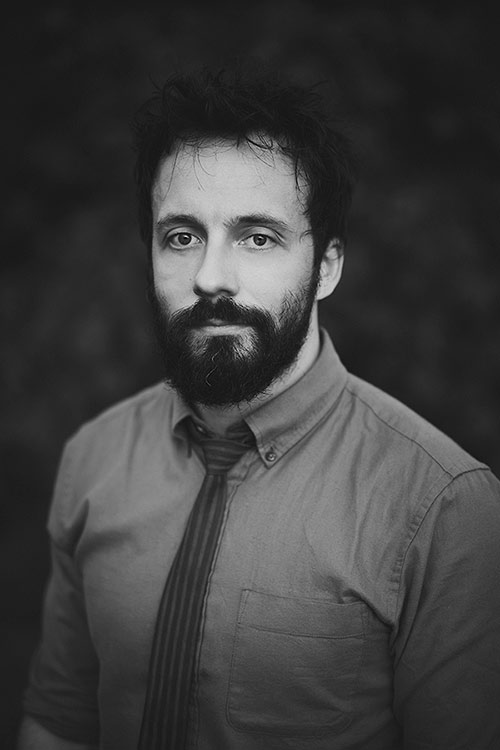On Friday, May 5th, I had the honor and pleasure of taking part in the 5th edition of Motion Motion, the motion design festival in Nantes. I was invited as a “motion designer” passionate about handcrafted paper animation.
In the morning, I led workshops based on my work for L’École du chat noir. I had the opportunity to exchange ideas with small groups of professionals and students in the field on both technical and philosophical topics. I shared some of my skills and ideas through the little cardboard puppet of the black cat.
⁂
In the afternoon, I participated in two round tables titled “How to be a motion designer without spending your life in front of a computer?” and “Artificial intelligence: how will it integrate into our professions?”. I took this opportunity to share with my peers some points that I consider crucial in the current political, economic, social, and ecological context. I notably recalled that:
☞ In industrial society, art increasingly becomes technique. Meaning disappears in favor of a set of technical processes. The artist gradually becomes a technician in an ever more artificial and toxic environment (Ellul, The Empire of Nonsense).
☞ Computers destroy art and poetry. Wherever computers advance, art and life retreat. By definition, the computer is programmed, planned, its tasks are technical, efficient, standardized. It reduces the entire world to its binary language of 0 and 1. Everything that escapes its logic is devalued and discarded. Yet life cannot be reduced to numbers. Life (and art) is by nature random, adventurous, mysterious, unforeseen, free, autonomous, diverse.
☞ Screens sever our sensory relationship to the world. They are flat intermediaries between us and the rest of the real world. They objectify and reduce the world to a screen, a tablet, a smartphone, etc. This produces indifferentiation; we zap, one image replaces another (Divertir pour dominer 2). Screens are the material supports of the capitalist society of the spectacle. The whole of society suffers from life behind screens—and artists in particular.
To evolve, the artist needs matter—with its qualities and flaws—that resists, that demands to be understood and tamed. Over time, the artist builds a relationship with the material; as they transform it, it transforms them. Screens “block” this artistic process. They also short-circuit our brains, our attention, our understanding. They prevent us from thinking, from reflecting. They actively participate in our alienation.
☞ Technology (produced by the “marriage of science and capital”) is opposed to freedom. It is not “neutral”; it is political. Technology requires and reinforces a hierarchical, steered, ordered, constrained, standardized social order to retain only the efficient and profitable processes. It is the tool through which the powerful extend their power. It is the tool of technocrats who steer the machine-world. If there are technological masters, there are technological slaves. And freedom cannot be expressed—or even make sense—if we are not equal, if one class dominates another.
☞ Technocracy is the rule of experts. Technocrats and industrialists constantly dispossess us of our trades, practices, and ways of life in order to manage them scientifically and rationally. They are responsible for the ecological and social disaster into which they are plunging us—and yet they present themselves as saviors (Charbonneau, Le Feu Vert).
☞ “Artificial intelligence” is the continuation and intensification of this process of mechanization, artificialization, and automation that is inherent to industry. Cybernetics, the science of control, consists of steering society using a “governing machine” (Pièces et main d’œuvre, Le Règne Machinal). In this sense, the “democratization” of AI is complete nonsense. AI is based primarily on data extraction, made possible by permanent, alienating connection to machines. Complex decision-making by algorithm is a fascist and dehumanizing tool that sees the “human factor” as an error, a parameter to manage. There is no desirable or “measured” form of reappropriation.
☞ AI is not creative—it reproduces standardized, selected, normed existing content. It impoverishes the world and culture to enrich a few capitalists and industrialists. It is a devitalized process that eliminates chance, imperfections, and singularity. It is presented to us as inevitable (like the rest of technological progress), imposed on us through colossal investment and mind-numbing advertising. We are not allowed to refuse it. In this context, those who advocate for “measured” or “hijacked” use are mocking us.
☞ Industrial civilization is not sustainable. This powerful, militarized, extractivist, hierarchical, patriarchal, destructive society threatens the very possibility of life on Earth. 200 species, among others, are exterminated every day because of this social organization. How are computers made? With what resources? Under what social conditions? With what ecological harms? All of this infrastructure is highly deadly, not sustainable, and cannot benefit everyone or nature. There is no “green,” “free,” “user-friendly,” or “decarbonized” digital world (Lainae & Alep, Contre l’alternumérisme).
☞ Political resistance is necessary. The market puts us all in competition. If we individually decide to stop using machines, it changes nothing, because we live in the world of computers. I can stop using a smartphone and feel morally superior, but I haven’t solved the root problem—the harms continue. But since we have a moral obligation to address this issue, resistance to the digital world must be conducted on a larger, collective, and organized scale.
☞ That’s why artists must “break everything.” At a minimum, artists should stop getting excited about new materials, machines, and gadgets of technoscience, and come back down to Earth. “Motion designers” will express their creativity in art that requires neither tyranny nor ecocide—like scenography (and it’s not boring!). If they wish to remain human and artists—to save art, life, and freedom—artists will smash the machines and take part in bringing down industrial civilization.
This event allowed for wonderful encounters and rich, meaningful exchanges. I wish I had stayed longer, and I once again thank the organizers and volunteers who made it possible.
Thanks also to everyone I was able to chat with during the morning workshops—it was really lovely.

I am open to artistic commissions, residencies, scenographic, video, or musical collaborations.
A project in mind? A strange dream to bring to life? Let’s write it together.

Veuillez m’écrire à mon adresse ou bien utilisez le formulaire ci-dessous. Je répondrai dans les meilleurs délais.
Veuillez m’écrire à mon adresse ou bien utilisez le formulaire ci-dessous. Je répondrai dans les meilleurs délais.
Sign up to the newsletter for the latest updates and exclusive offers from the shop.
Sign up to the newsletter for the latest updates and exclusive offers from the shop.